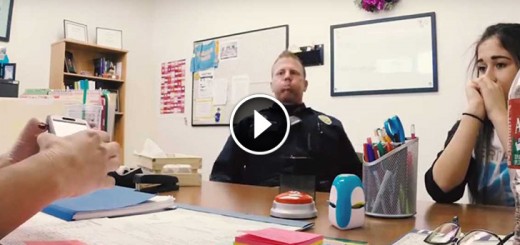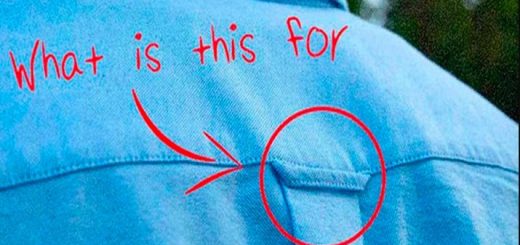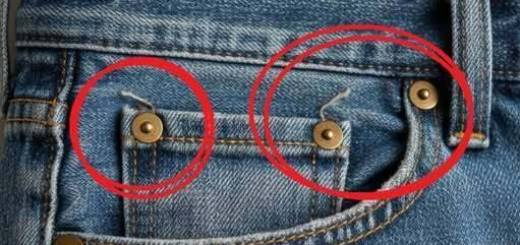7 Hidden Health Issues Your Nails Could Be Revealing
Did you know that your nails can tell you a lot about your health?
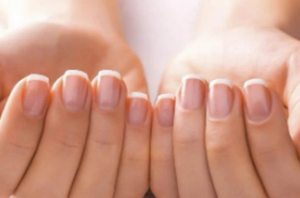
Changes in their color, shape, or texture could be signs of underlying medical conditions.
According to Dr. Sara Norris, a naturopathic doctor based in Los Angeles, your nails often reflect your nutritional status and overall well-being.
By paying attention to subtle nail changes, you might catch hidden health issues before they become serious.
Here are 7 important health conditions your nails might be revealing:
1. Beau’s Lines: Indicators of Physical Stress
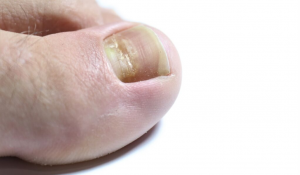
Beau’s lines are deep grooves or ridges that run across the nail. They usually appear after a period when nail growth has temporarily stopped, often due to a significant illness or major stress.
Conditions like COVID-19, chemotherapy, or severe infections can trigger these lines.
While they aren’t always serious, repeated or persistent Beau’s lines should be checked by your doctor to rule out underlying health concerns.
2. Clubbing: Could Signal Heart or Lung Problems
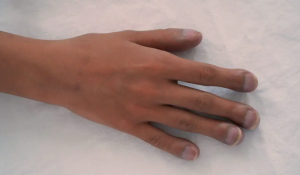
If your fingernails start to curve downward and the tips of your fingers appear swollen, you might be experiencing a condition known as clubbing.
This could be a warning sign of heart disease, lung disease, or other circulatory issues. Symptoms like chest pain, breathlessness, or swollen ankles should not be ignored.
If you notice these changes, speak with a healthcare professional to explore potential causes.
3. Spoon-Shaped Nails: A Sign of Iron Deficiency
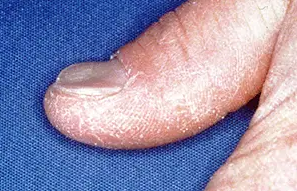
Also known as koilonychia, spoon-shaped nails that curve inward may indicate iron-deficiency anemia.
This condition can develop after pregnancy or result from poor nutrition or digestive problems.
Symptoms often include fatigue, pale skin, and frequent headaches.
If you notice spooning in your nails, consult your doctor for a blood test. Treatment usually involves iron supplements and dietary changes.
4. Pitting or Denting: Linked to Skin Conditions
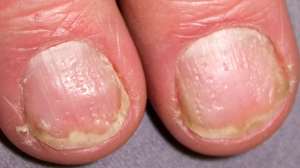
Small dents or pits on your nails might be harmless, but they can also be linked to skin conditions like psoriasis, eczema, or alopecia areata.
Psoriasis often causes scaly skin patches, while eczema leads to dryness and itching. Alopecia areata typically results in patchy hair loss.
If nail pitting appears alongside other skin or hair symptoms, a dermatologist can help diagnose the cause and recommend treatment.
5. Dark Lines: Watch Out for Melanoma
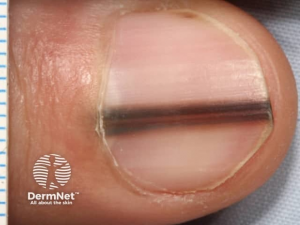
One of the more serious conditions to watch for is a dark streak running vertically along your nail, which could be an early sign of melanoma, a dangerous form of skin cancer.
Although not every dark line means cancer, it’s important to get it checked by a dermatologist. Early detection can save lives. Don’t ignore nail discolorations that grow, change, or look unusual.
6. Terry’s Nails: Possible Liver Disease Indicator
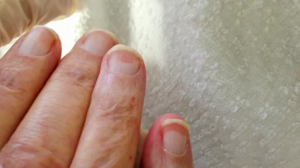
Terry’s nails appear when the majority of the nail bed turns white with a narrow pink or red band at the tip.
This can sometimes be linked to liver disease, heart failure, or diabetes. Symptoms like jaundice, fatigue, or loss of appetite might accompany the condition.
If you notice this change, speak with your healthcare provider to investigate the cause.
7. Yellow Nails: More Than Just a Cosmetic Issue
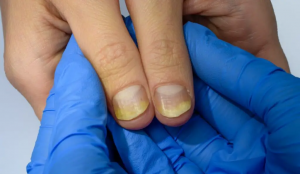
While yellow nails are often caused by fungal infections, they can also be associated with more serious health problems such as thyroid disease, diabetes, or lung conditions.
Fungal infections typically cause thickening, crumbling, or detachment of the nail.
If you don’t use nail polish and fungal infection seems unlikely, consult your doctor to rule out other possible causes.
Why Monitoring Nail Health Matters
Your nails are more than just a cosmetic feature—they can offer valuable insight into your body’s health.
Not every nail change is serious, but persistent or unusual changes should be evaluated by a healthcare professional.
Early attention can help prevent minor issues from becoming major ones.
By staying aware of what your nails are telling you, you can take proactive steps to protect your overall health.

